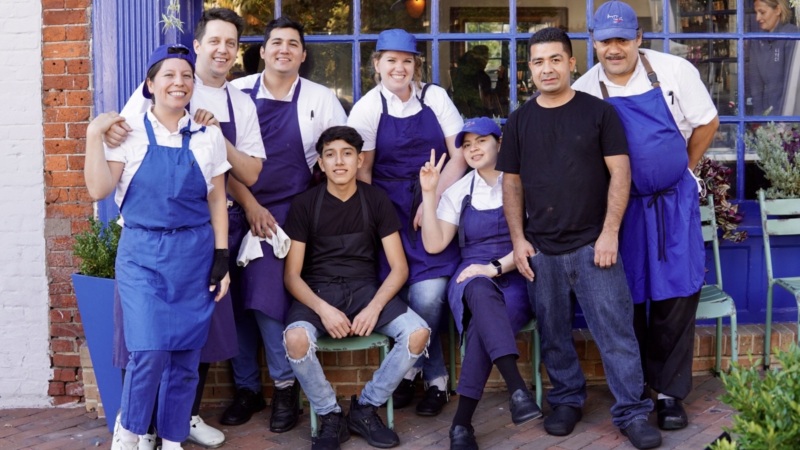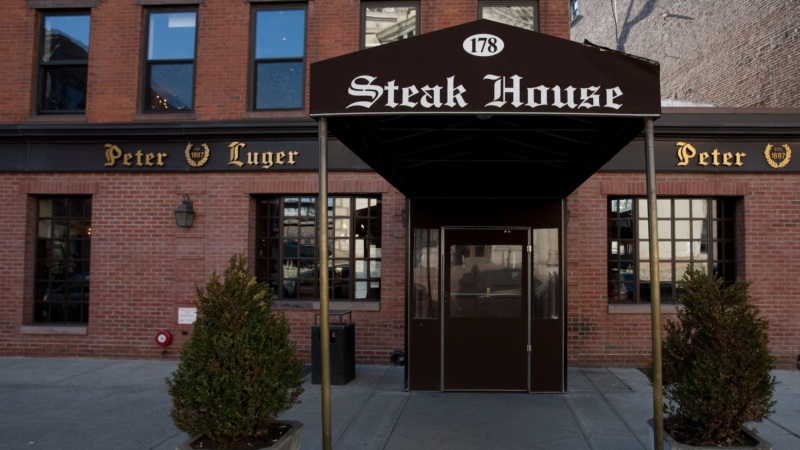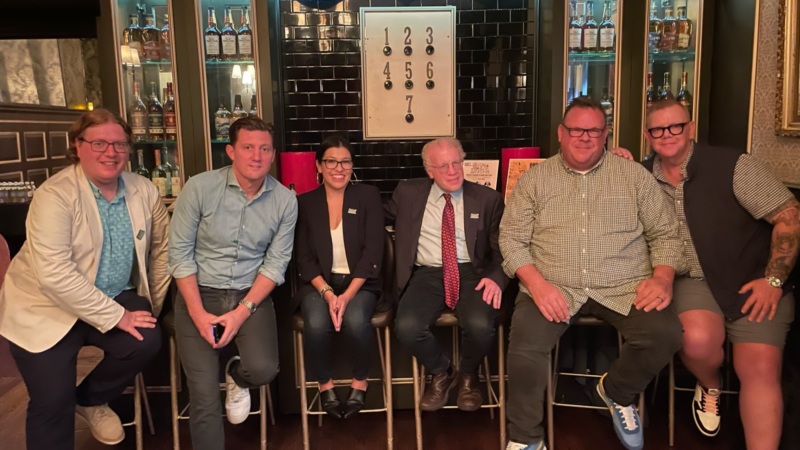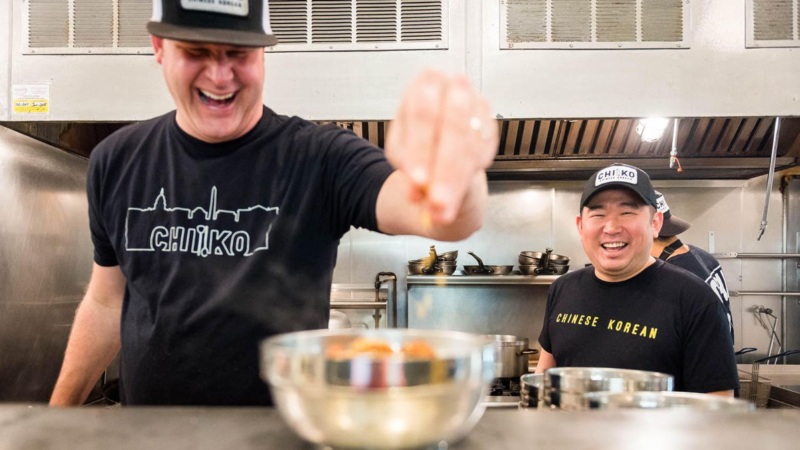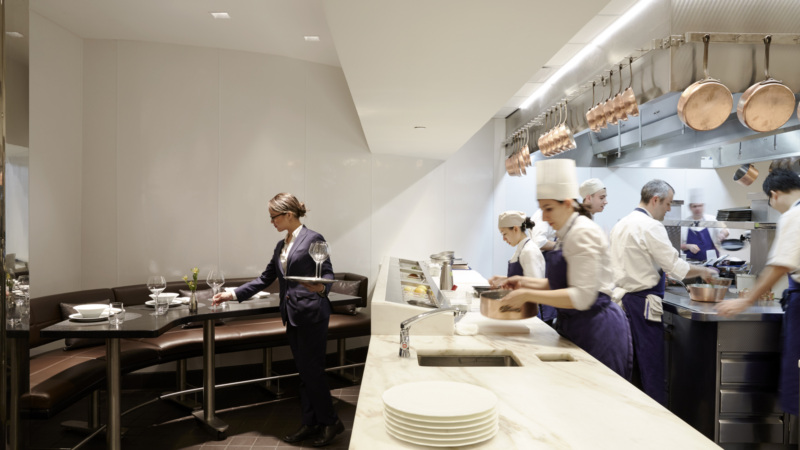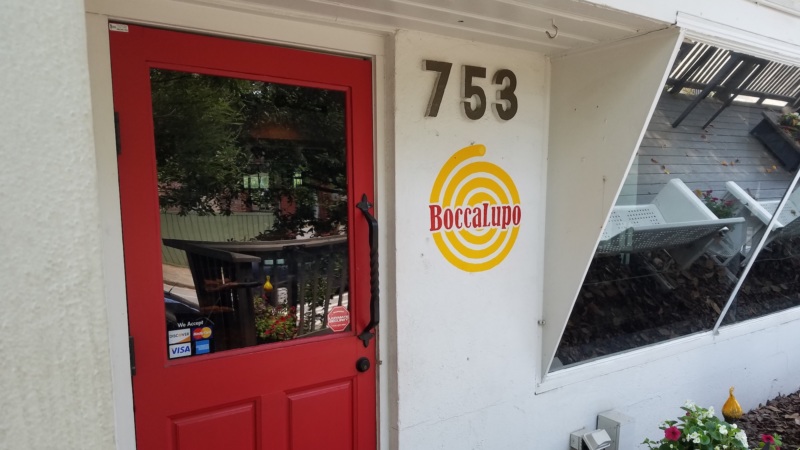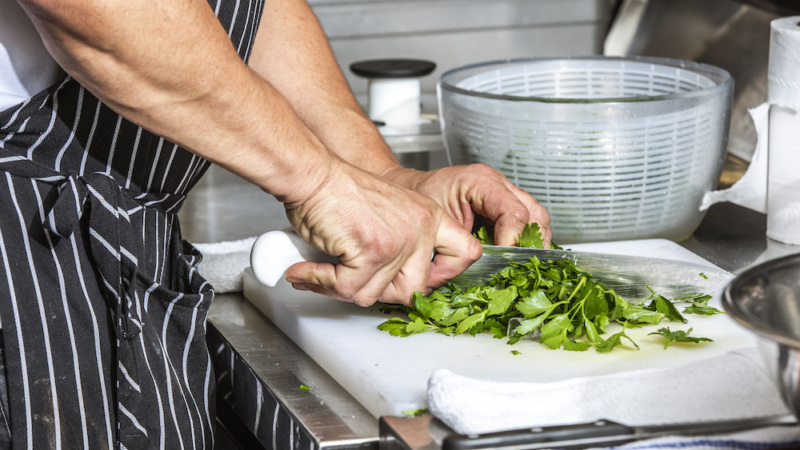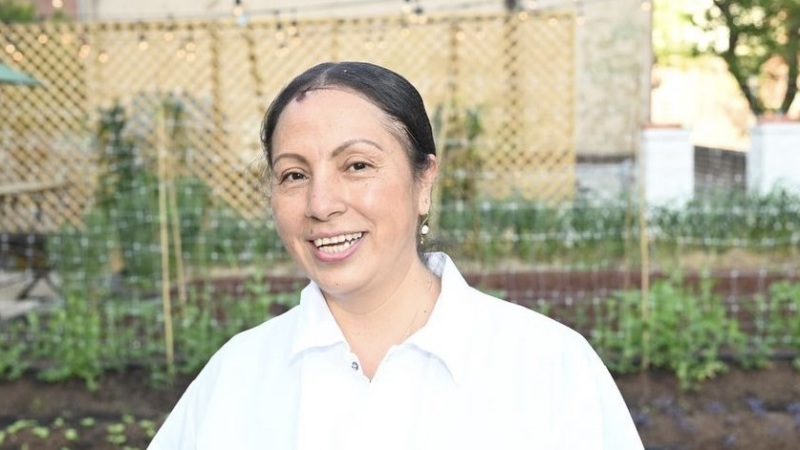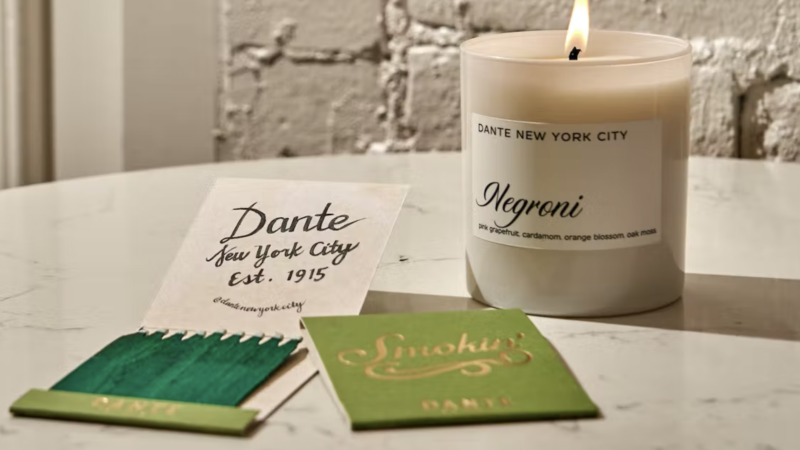
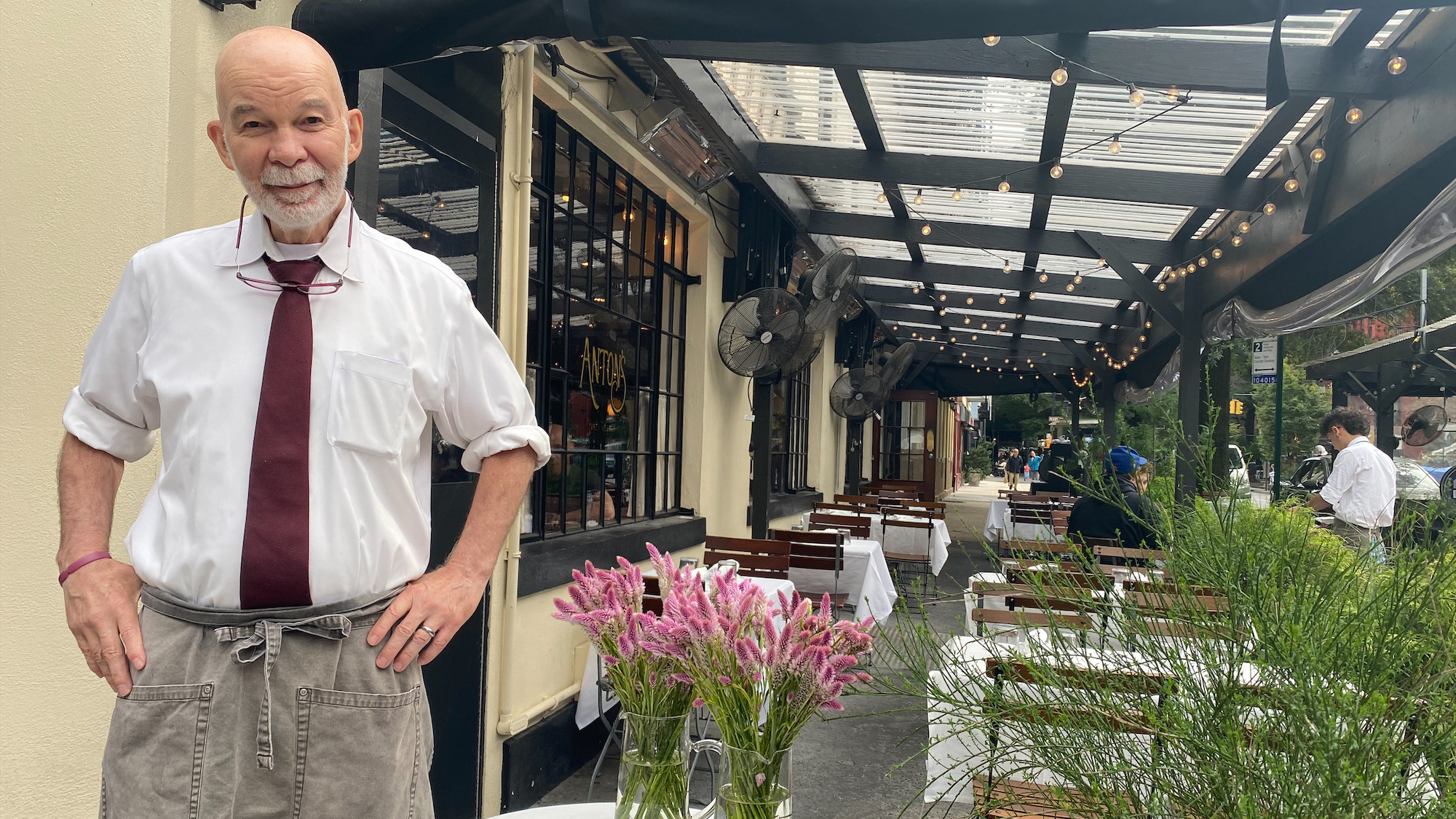
Dennis Mullally: 50 Years Serving New York City
In an industry with an annual employee turnover rate of 74%, what makes some workers decide to stick around for years or even decades? You’re reading Why We Stay, a regular interview series with longtime staffers that aims to answer this question by learning from those who are living it. Find inspiration from their stories to enhance your company culture and boost retention in your restaurant.
Name and Current Role: Dennis Mullally, Waiter
Restaurant: Anton’s, New York City
Year Joined: 2019
There are industry veterans. Then there is Dennis Mullally.
These days, Mullally is waiting tables at Anton’s, Nick Anderer and Natalie Johnson’s neighborhood restaurant in Manhattan’s West Village. Prior to helping the pair open Anton’s in late 2019, Mullally worked the bar at nearby Otto for 17 years. The man knows restaurants and hospitality. And he’s got the stories to prove it.
“50 years ago,”—yes, 50—“I was supposed to teach high school English,” recalls Mullally. “I told someone in the industry I wanted to try working in a restaurant. They figured in three shifts I would run screaming out the door.” How wrong they were. Mullally counts his formative time in restaurants in New York City as character-shifting. “Young Mister Mullally was once very shy and lacked self-esteem. But when I was around people all the time, being sociable and personable suddenly seemed to be a reasonable thing.” He tended bar at Jimmy Day’s in the West Village for a decade back when “I could live around the corner and pay my four-flight walk-up’s rent in a week.” He then worked at Formerly Joe’s with a certain Anthony Bourdain: “I used to scream at Tony that he never mentioned my name once he got famous.” The social core of hospitality work was always a draw, but so was the industry’s comparative stability. When finance people lost their jobs in the mid-1980s, Mullally remained gainfully employed. “In this transient business, I have always managed to find the right gigs.” He has been around so long in New York City hospitality, he worked at not one but two banjo bars.
In time, Mullally started manning the bar at Otto and remained there for nearly two decades. “I like to stay in the same place. I don’t get bored,” Mullally says. “It’s like golf: You can play the course in different ways. Being freelance would drive me crazy. I need to know where I’m going.”
You need to maintain surveillance. Not like a warden in a prison. But the people who work for you have to see you care for the business.
He knew Natalie Johnson from having worked together previously, so when she and Nick Anderer were opening Anton’s, he had a hunch they would create the type of hospitality environment he prefers—and he was right. “Ownership has to be hands-on,” he says. “The fish smells from the head down.” At Anton’s, Johnson and Anderer built a training program in which trainees are trained to succeed. Mullally has seen the opposite approach elicit failure, as when staff is not given the tools to succeed or are not vetted properly or management fails on the follow-through. “This is a day-to-day business,” says Mullally. “You need to maintain surveillance. Not like a warden in a prison. But the people who work for you have to see you care for the business. As Michael Corleone says in the Godfather movies ‘These people protect my life.’ If they—the ones who own the restaurant—don’t make sure their employees are taken care of and are prosperous, why are they working there?”
Attitude goes a long way. Mullally thinks employees should be proud of where they work and treat guests accordingly. “Not everyone is wonderful,” he says. “But people are coming to your place. Be grateful for that. We’re talking about pride of service, not servitude.”
When Mullally muses about hospitality, you smell not just the sweat of decades in the trenches but also a whiff of the ineffable. He talks about how good he is at his job, and you believe him. He talks about his bars feeling affable like Cheers, and you believe him. He talks about the magnetism of dialogue, and you don’t just believe him, you feel the ping of truth in your bones. “You can be in the weeds at the bar, and if you can still manage to introduce two people seated there who don’t know each other, it makes everyone’s life easier. I am really good at what I do.” This is not ego talking. This is self-assuredness about not only one’s own worth but the value of every guest who sits on a dining room chair or barstool.
*Opinions and views in articles shared on Resy OS are presented for the purpose of discussion and commentary on topics of interest in the restaurant industry; they should not be viewed as substitutes for advice given by professionally engaged business consultants and advisors.




